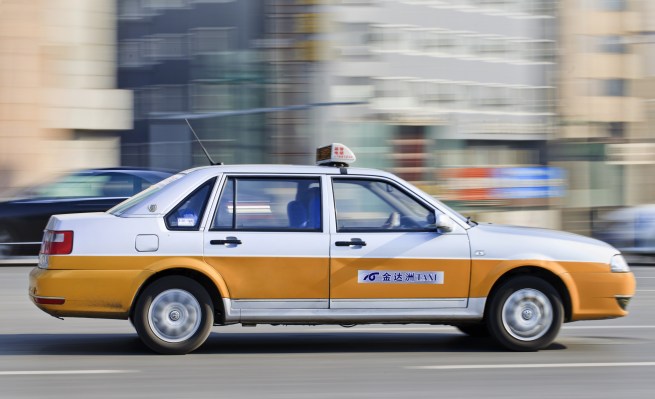Last year saw Uber challenged with regulator and government battles across North America, Europe and Asia, and today China took its first step to cracking down on its fast growing taxi app space.
State-run media outlet Xinhua reports that the Chinese government has “forbade” private cars and unlicensed vehicles from using taxi-hailing apps such as Didi Dache and Kuaidi Dache — China’s top two services — and, of course, Uber.
“The ministry encourages innovation and just wants to make the business develop in an orderly manner and in accordance with the law,” the report added.
Authorities in Shanghai detained 12 vehicles that were using Didi Dache — which recently raised $700 million and claims 100 million registered users and one million drivers — in December. Each driver was fined 10,000 yuan, which is just over $1,600. That same month, Uber’s office in Chongqing was raided by police as part of an investigation.
The development looks bad for taxi app companies at first hand — and some media have already falsely claimed that Uber is “banned” in China — but at this point the government is taking action against ‘unlicensed’ cabs and, seemingly, regular car owners offer rides.
Xinhua reports that the app companies should “ensure that all vehicles are owned by taxi or car-hire companies out of concern for passenger safety.”
A spokesperson for Uber China confirmed to TechCrunch that its service has not been banned in the country, and the company has issued a statement — at the bottom of this post. A ban doesn’t seem to be on the cards if authorities stick to cracking down on unlicensed drivers, since Uber Black uses limo fleets controlled by third party companies while Uber X uses a pool of licensed cars run by cab companies. Of course, Uber’s status depends on how the government’s crackdown develops.
Uber does offer a peer-to-peer option in the shape of its non-profit ‘People’s Uber’, but it is not clear whether the service — which remains ‘in trial’ — will be subject to a crackdown, left alone or closed down.
Didi Dache and Kuaidi Dache are thought to account for more than 95 percent of taxi-app bookings made in China. That’s tough competition for Uber to break. The U.S. company landed a strategic investment from search giant Baidu to help make inroads in China. Baidu will help promote Uber via its services, including its maps and search apps.
Here’s Uber’s statement in full:
China’s top leaders’ recent statements have shown support for reforms and innovation. We are also pleased to see Ministry of Transportation confirming the value and benefits that innovative mobile Internet technologies bring to the transportation industry.
Uber respects the key role the government plays in ensuring that its citizens have access to safe, affordable and efficient transportation options. We are actively working with authorities around the world to adopt appropriate regulations to accommodate new technologies that can help solve many of the current problems with urban transportation — congestion, pollution and lost productivity at work. We appreciate our ongoing conversations with Chinese authorities and believe that consumers and communities will continue to benefit from the progress we have seen.
China has been rumored to be working to purge foreign tech suppliers, and it called out a number of global companies last year, including Apple, Microsoft and Qualcomm. International technology firms generally struggle to make a mark in China — Facebook and Twitter are among the legions that are censored there, while Google withdrew its services — and it remains to be seen what Uber’s longterm future in China looks like, even with the support of Baidu.
